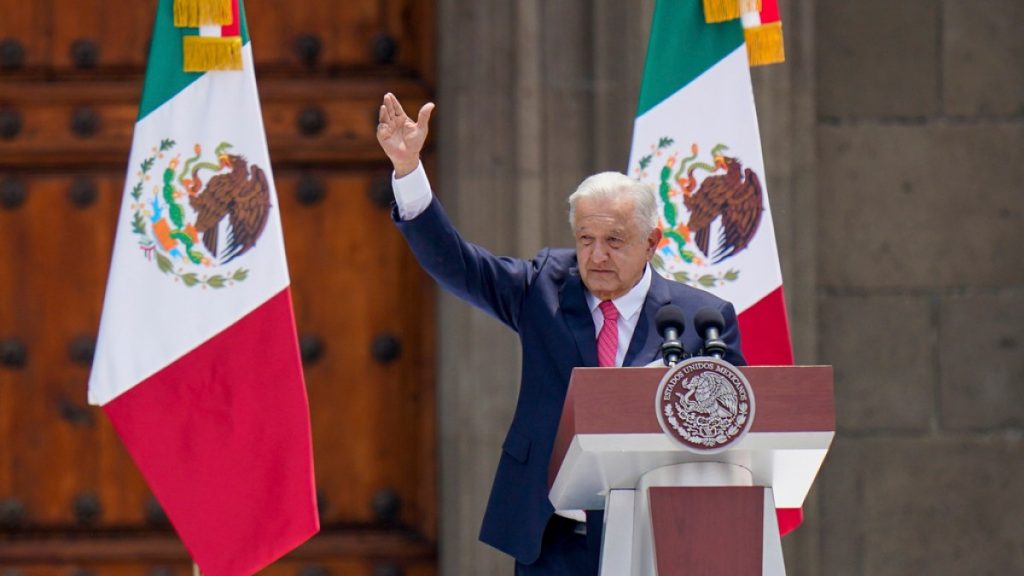Mexico’s President Andres Manuel Lopez Obrador recently defended his legacy during his final state-of-the-nation address, just a month before he will be replaced by Claudia Sheinbaum, his close ally. Despite facing criticism for his push to overhaul the country’s courts, Lopez Obrador continues to enjoy a high approval rating of 73 percent as his six-year term comes to a close. In a two-hour speech in Mexico City’s Zocalo Square, he bid farewell to his supporters and emphasized the progress made during his presidency.
Thousands of enthusiastic followers gathered in Zocalo Square to hear Lopez Obrador speak, creating a celebratory atmosphere. He expressed his belief that Mexico is on the path to building a new democracy and a better future for the country. The president’s annual report on governmental progress in Mexico, similar to the State of the Union address in the United States, highlighted the achievements and challenges faced during his time in office. His supporters praised him as one of the most historically significant presidents in Mexico.
On October 1, Lopez Obrador will transfer power to Sheinbaum, who will become Mexico’s first female president after being elected in June. The outgoing president leaves behind a legacy of constitutional reforms, including a controversial plan to overhaul the judiciary by allowing popular votes to elect federal judges, including Supreme Court appointees. While Lopez Obrador defended this plan as a measure to combat corruption in the justice system, critics fear that it will compromise judicial independence. The proposal triggered strikes by judicial workers and drew criticism from the US Ambassador to Mexico for potentially endangering the bilateral trade relationship.
During his speech, Lopez Obrador reiterated the importance of the judicial overhaul plan in ensuring that judges serve the people and are not influenced by criminal elements. He highlighted his administration’s efforts to combat poverty in Mexico through social programs, direct credit transfers, and other initiatives. While supporters praised him for reducing poverty and implementing social welfare programs, critics remain skeptical of his anti-corruption efforts. Despite the controversies surrounding his presidency, signs of gratitude and support for Lopez Obrador were prevalent throughout Zocalo Square during his farewell address.
As Lopez Obrador prepares to leave office, his supporters reflect on his accomplishments in combatting poverty and implementing social programs, while critics raise concerns about his controversial plan for judicial reform. The tension over the proposed overhaul of the judiciary, which includes electing judges through popular votes, highlights the challenges faced by Mexico’s democracy. The transition of power to Sheinbaum, the incoming president, marks a new chapter in Mexico’s political landscape, as the country navigates the legacy left behind by Lopez Obrador and grapples with the implications of his reforms.













